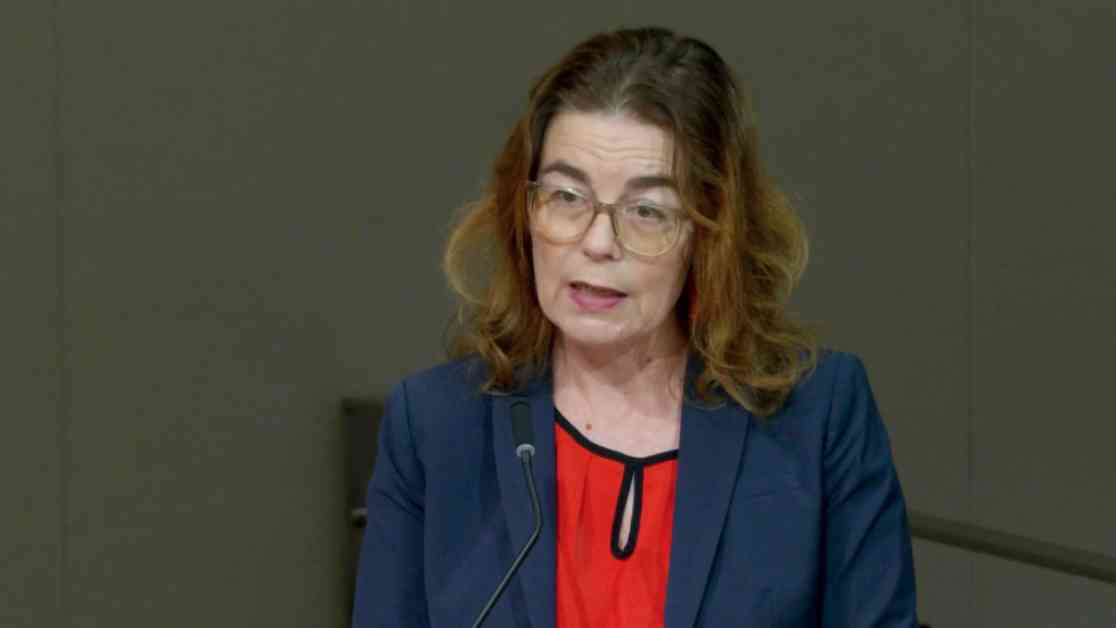Addressing Anti-Semitic Content in Ethnic Studies Curriculum: Jewish Legislators Push for Additional Protections
In an effort to combat anti-Semitic content infiltrating some ethnic studies courses in California, Jewish legislators are advocating for additional safeguards to protect Jewish students and ensure a balanced perspective on sensitive issues. Assemblymembers Rick Zbur, D-Los Angeles, and Dawn Addis, D-Morro Bay, have been at the forefront of this push, despite facing opposition from various groups.
The proposed legislation, AB 2918, aimed to enhance existing laws by introducing public review mechanisms, disclosure requirements, and anti-bias provisions to address concerns about biased content in ethnic studies courses. While the bill did not advance as intended, Zbur and Addis remain committed to revisiting the issue with a stronger coalition of supporters in the future.
The root of the issue lies in the incorporation of the Israeli-Palestinian conflict into high school ethnic studies curricula, portraying Israel as an oppressive force and fueling anti-Semitic sentiments among students. Jewish families have reported instances of discrimination, harassment, and bullying directed at Jewish students as a result of the biased narrative presented in these courses.
Challenges and Controversies Surrounding Ethnic Studies
The clash between the Legislative Jewish Caucus and proponents of the “liberated” approach to ethnic studies has sparked debates over the appropriate content and focus of these courses. While the primary goal of ethnic studies is to highlight the historical struggles and achievements of minority groups in the United States, the inclusion of contentious international conflicts has raised concerns about academic integrity and inclusivity.
Several school districts have engaged consultants advocating for a particular perspective on ethnic studies, leading to a divide in educational approaches and priorities. The Coalition for Liberated Ethnic Studies, comprising various groups and organizations, has promoted a narrative that some legislators argue promotes bias and discrimination against certain communities, including Jewish students.
Proposed Solutions and Legislative Initiatives
In response to the challenges posed by biased ethnic studies curricula, AB 2918 sought to establish clear guidelines for reviewing and approving course materials, ensuring that they align with the principles of inclusivity, accuracy, and respect for all student groups. The bill’s proponents emphasized the need for transparent processes and community input to address concerns about potential indoctrination or misinformation in classrooms.
While the bill faced opposition from educators, unions, and advocacy groups who viewed it as a form of censorship or undue regulation, Jewish legislators maintained that the additional protections were necessary to safeguard the educational experience of all students. By highlighting the importance of presenting diverse perspectives and fostering critical thinking skills, they aimed to promote a more balanced and inclusive approach to ethnic studies.
In light of ongoing legal challenges and controversies surrounding ethnic studies curriculum, the debate over the role of legislation in shaping educational content remains contentious. Critics argue that imposing strict guidelines could limit academic freedom and stifle discussion on complex issues, while proponents assert that without proper oversight, students may be exposed to one-sided or misleading information.
As California continues to grapple with the implications of incorporating sensitive political topics into high school curricula, the need for constructive dialogue, collaboration, and mutual respect among stakeholders becomes increasingly apparent. By engaging in meaningful discussions and seeking common ground, legislators, educators, and community members can work together to ensure that ethnic studies courses promote understanding, empathy, and critical thinking skills among students of all backgrounds.
